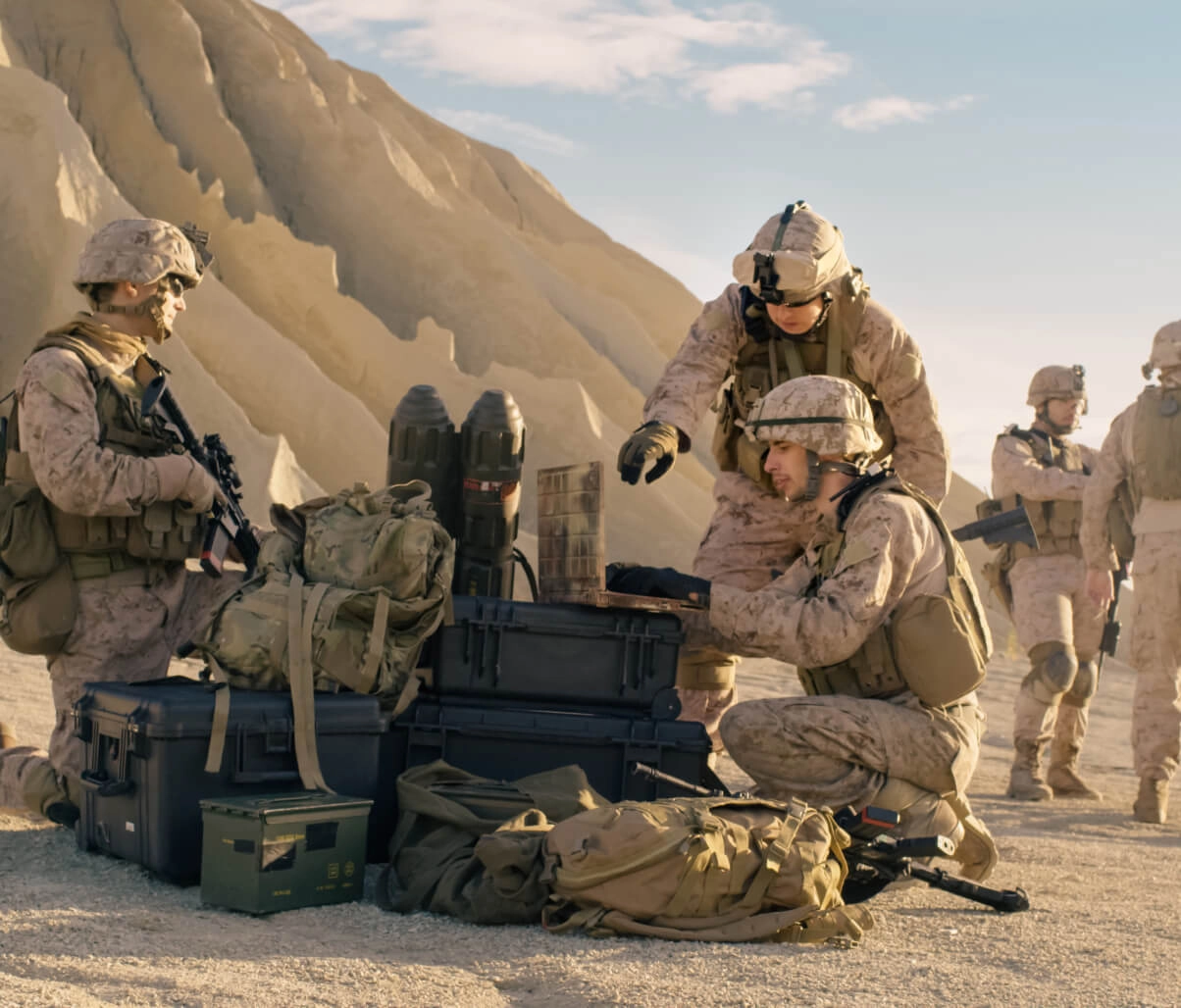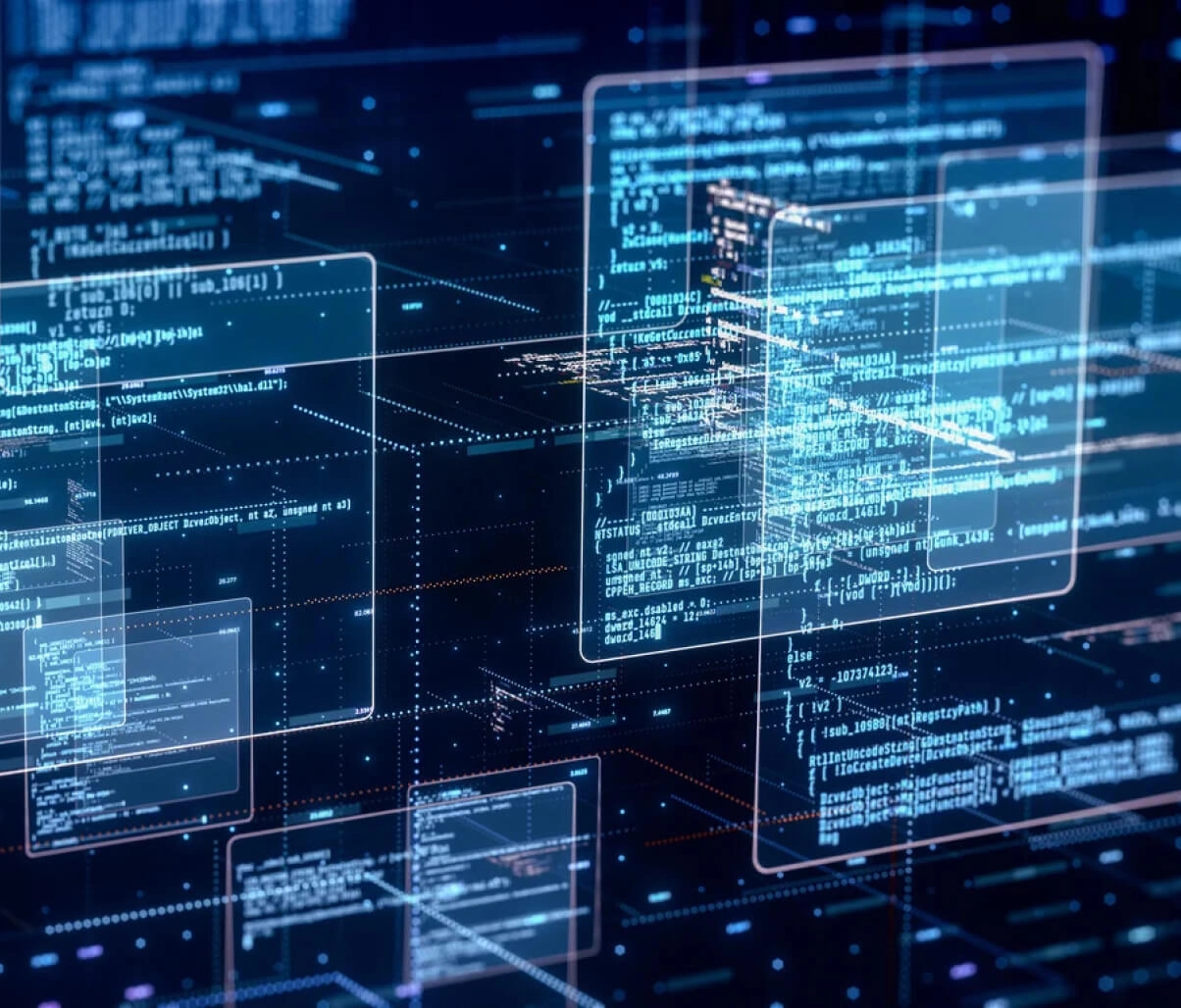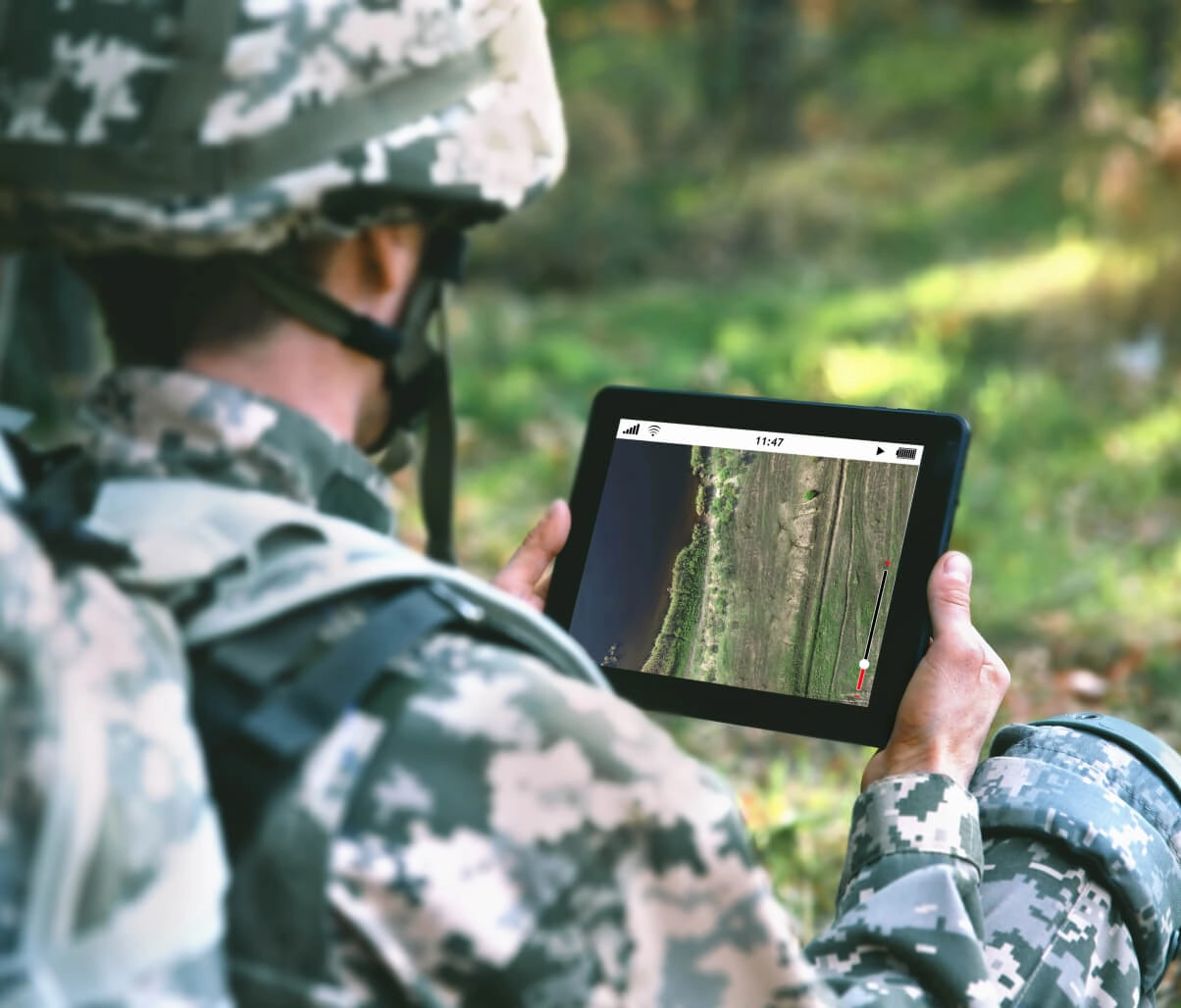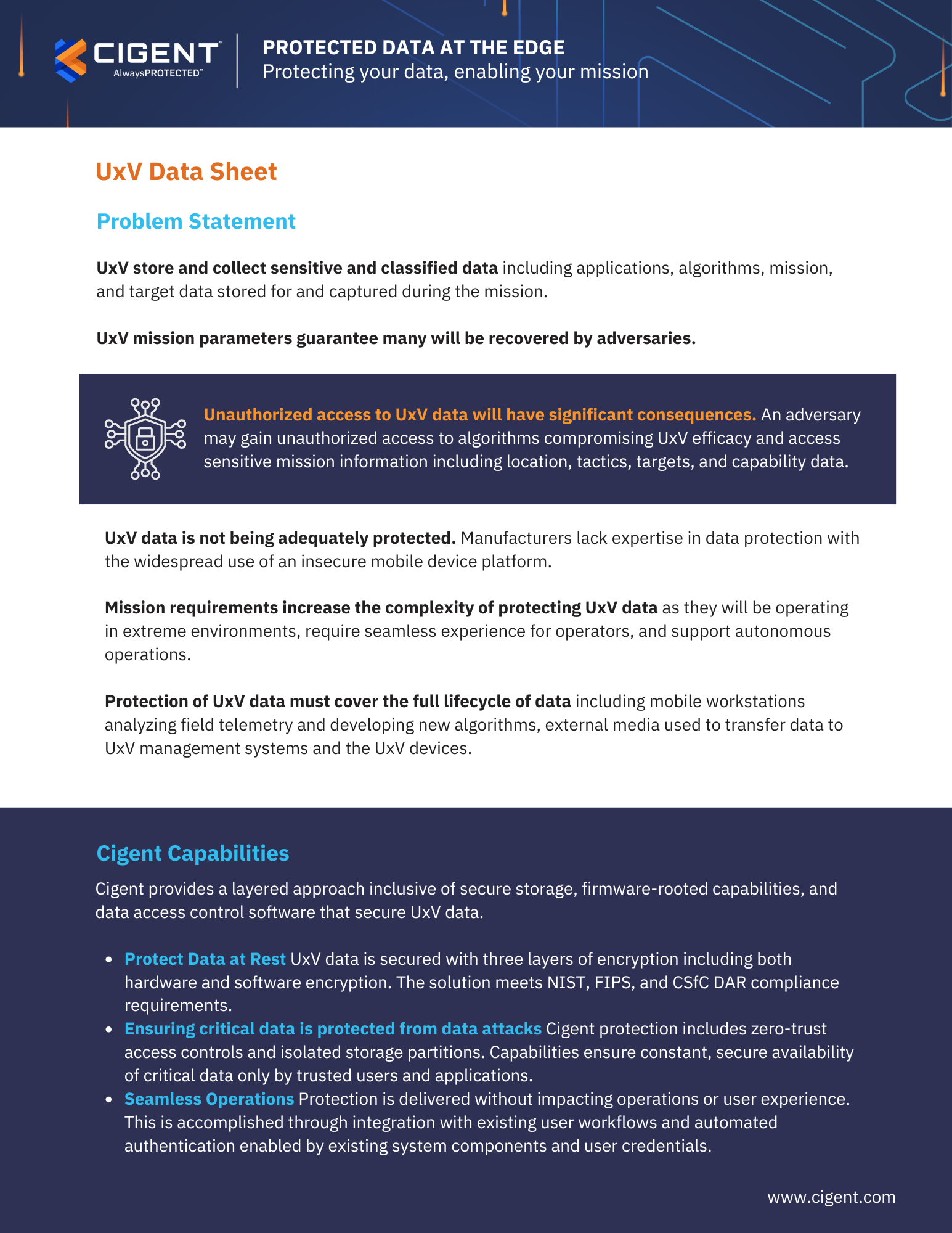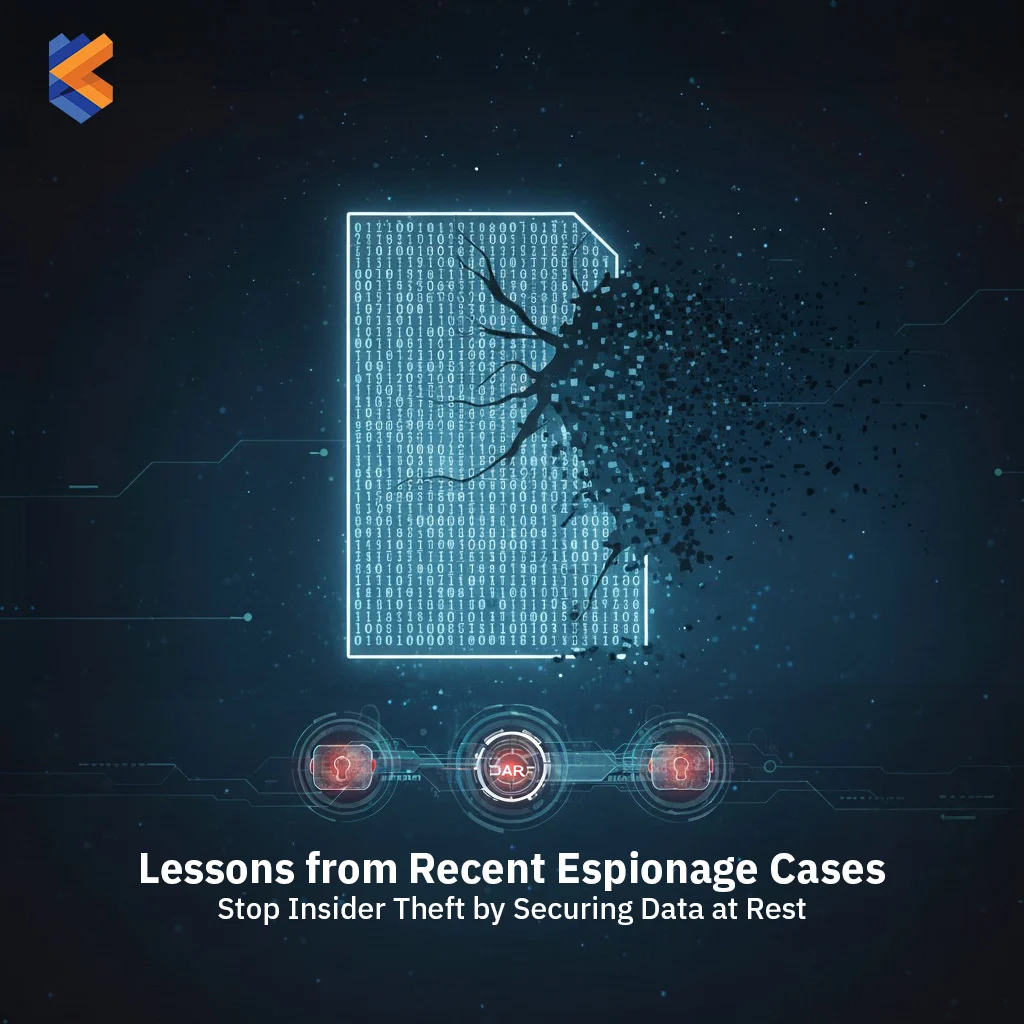Mission-Grade Security for Mobile and Autonomous Systems
Unmanned and manned vehicles generate and store vast amounts of classified data—from sensor payloads and targeting imagery to communications and telemetry logs. Their mobility and forward deployment create a unique risk: a single downed or captured platform could expose valuable intelligence to adversaries.
Cigent SSD solutions provide two layers of CSfC for DAR data protection to prevent that exposure. Hardware encryption and Pre-Boot Authentication ensure drives remain locked until authenticated, while Software Full Drive Encryption (FDE) provides a second layer of defense. From the skies to the sea to the field, Cigent SSDs ensures that sensitive mission data remains secure at all times.
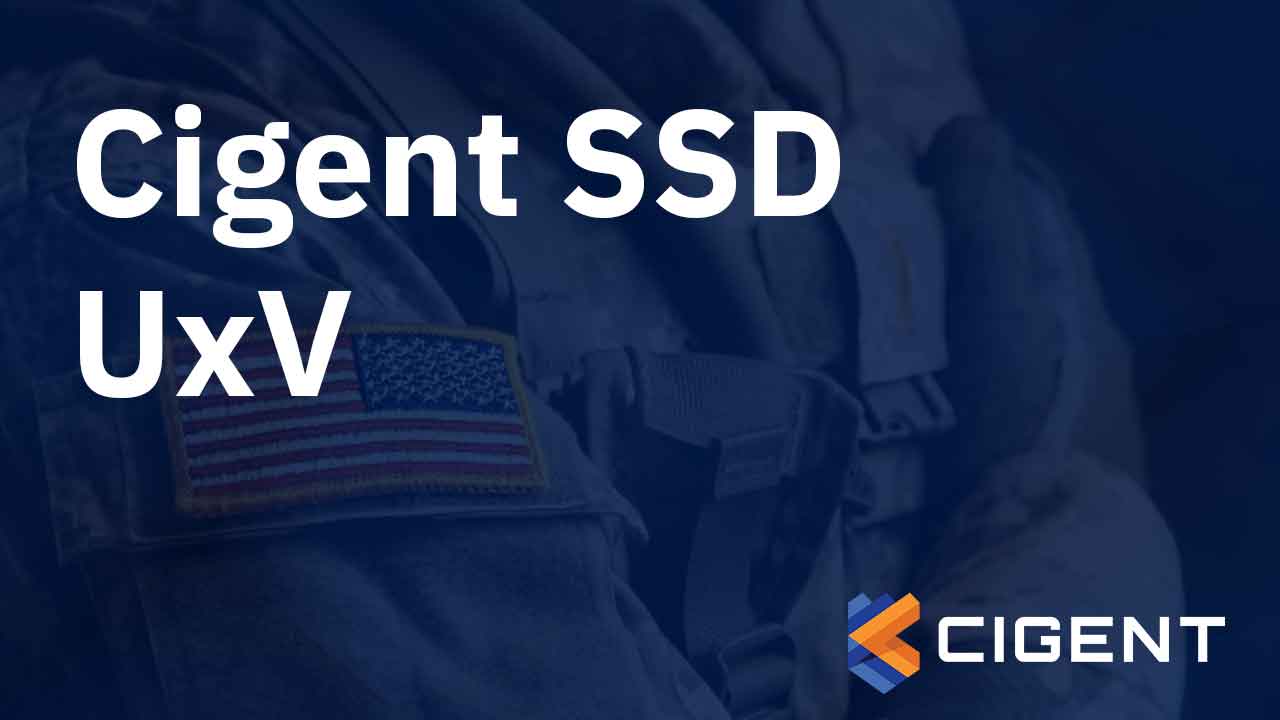
Data security is fundamental to preventing unauthorized access to data at rest (DAR). UxV data is secured with two layers of encryption, including both hardware and software encryption. The solution meets NIST, FIPS, and CSfC DAR compliance requirements.
Cigent protects UxV data from advanced data recovery, malware, and denial-of-service attacks. Protection includes access controls and isolated storage partitions, ensuring constant, secure availability of critical data only by trusted users.
UxV operations make data destruction an essential element of each mission. Cigent implements erasure in seconds via crypto wipe, full block-level erasure, and firmware-based verification, ensuring UxV with remote and automated execution capabilities.
Reducing insider threat risk requires precise access control and transparent oversight. Cigent enables data segmentation through secure partitions that limits access to authorized personnel, while tamper-proof access logs record every event to provide verifiable evidence for analysis and post-incident forensics.
